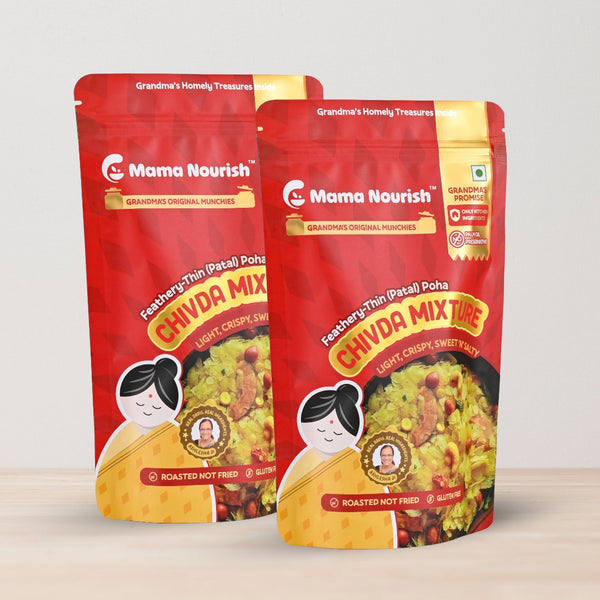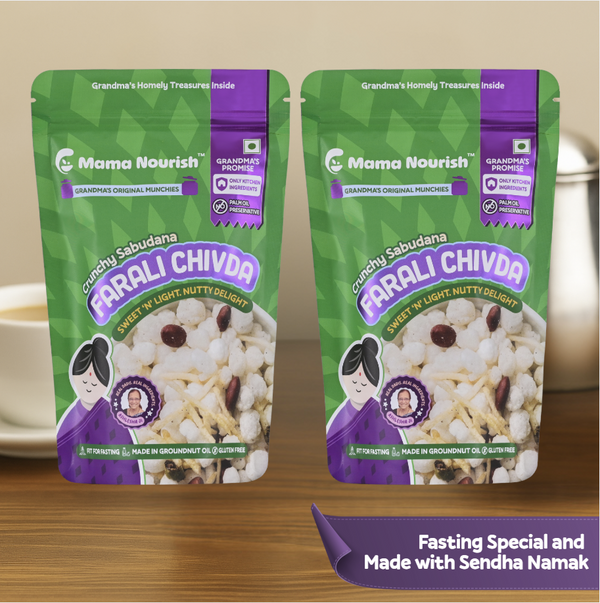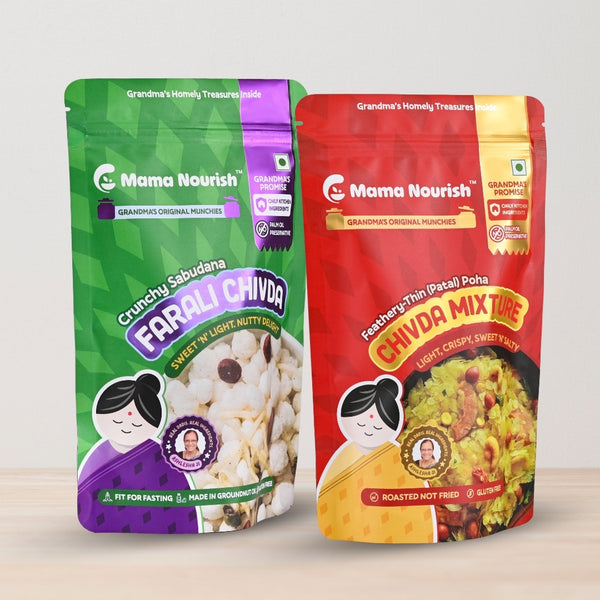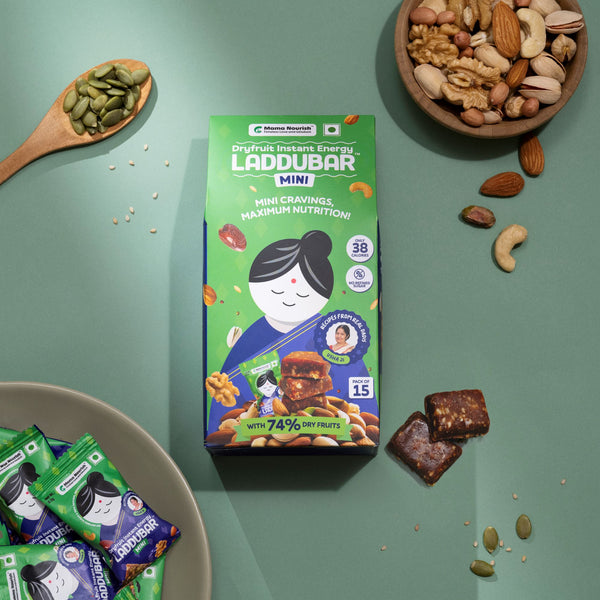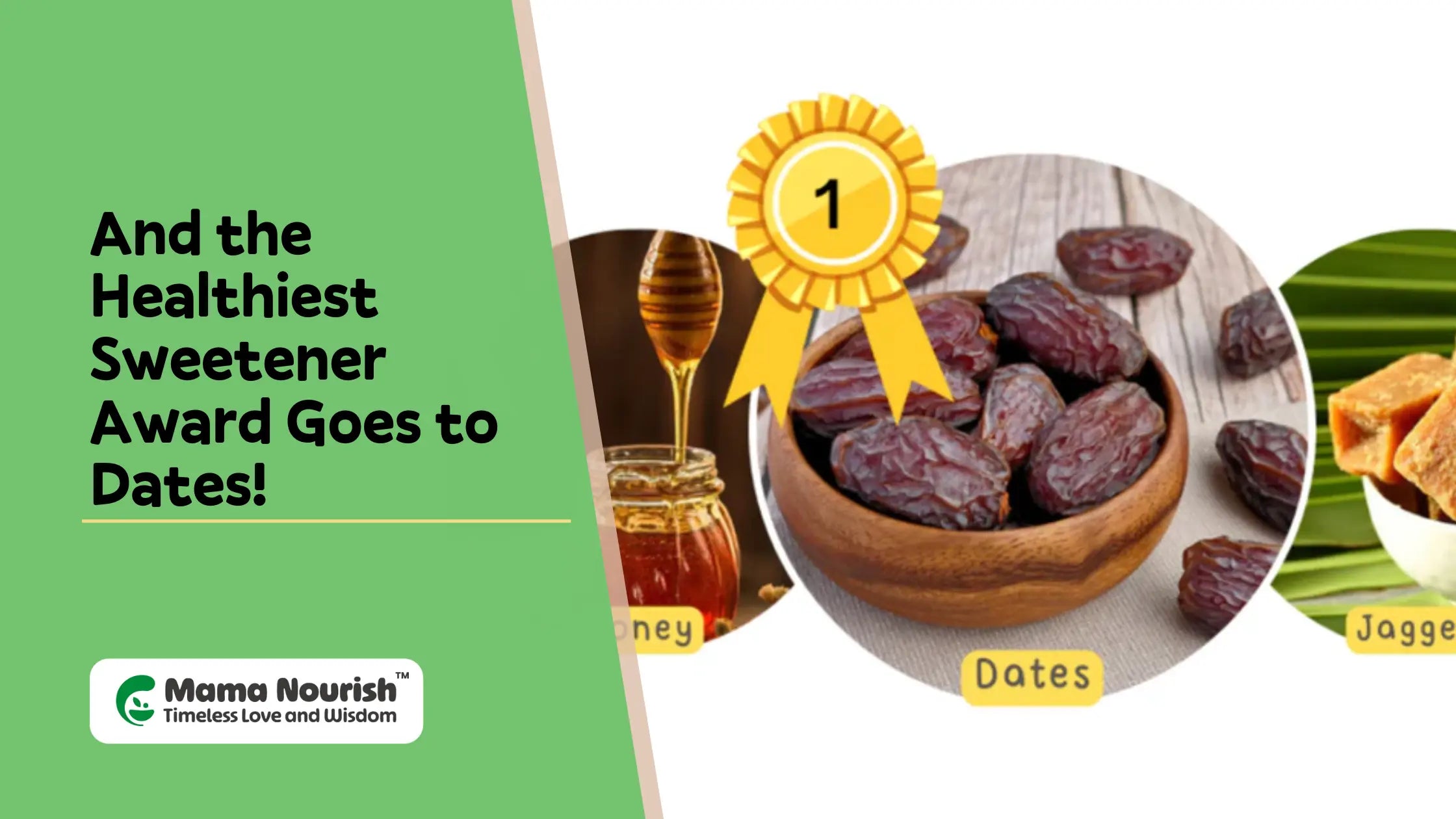
And the Healthiest Sweetener Award Goes to Dates!

Did you know that diabetes contributes to 1.5 million annual deaths, while heart disease claims around 17.9 million lives yearly, and approximately 13% of the global adult population battles obesity?(Mind you- all this data is from the World Health Organization)
And one of the supervillains responsible for all these is - Refined sugar.
A study published in JAMA Internal Medicine found that consumption of a higher percentage of calories from added sugar significantly increases the risk of dying from cardiovascular disease. See, it's deadly! ( rightly called as slow poison!!)
The good thing is today, people are more aware of the bad effects of refined sugar than ever before. But…for most of us, sugar cravings are irresistible!
So, the million-dollar question is: how to satisfy your sweet tooth without refined sugar?
Luckily, we have natural alternatives that not only satisfy your sweet cravings but also are nutrient-rich!
Curious to meet these superheroes??? On the top of our list is -Dates!
Dates: A Healthy Superfood Alternative to Sugar!

The dates are one of the best alternatives to sugar. 100 grams of dates pack around 282 calories. The white sugar on the other hand gives around 387 calories/100g.
The cool thing is that dates generally have a low Glycemic Index (GI), typically ranging between 44 and 53 (might vary a bit based on the type)in contrast to sugar, which has a glycemic index of about 63. (The glycemic index tells us how fast a food can spike your blood sugar, the lower the better)
The studies published in the National library of medicine, notes that two to three servings of dates fruit/day are beneficial for patients with diabetes. Moreover, dates not only ease your concerns about blood sugar but also bring along a bunch of other health benefits.
The dates possess antioxidant, anti-inflammatory, antitumor and anti-diabetic properties. The dates are a rich source of dietary fiber, magnesium, calcium, manganese, iron and vitamin B6.
Being a rich source of fiber, it reduces appetite, aiding in weight loss. Minerals like calcium promote bone health, while antioxidants benefit your brain. Dates are known to aid digestion, and their potassium content is good for the heart.
( To put it simply, it's a nutrient powerhouse, with so many micronutrients vital to overall well-being)
So, the next time you prepare your favorite sweet dish, consider adding dates instead of white sugar. Excellent examples include Dry Fruit laddu, Gondh laddu, Millet laddu, Kamarkas laddu, halwas, burfi, etc.

Looks delicious, doesn't it? But, no time to follow all those methodical procedures to make these healthy treats? In that case, check out our mama nourish Laddu bars with zero added sugar!
On our quest to explore natural sweeteners, the next big shot we are going meet is a natural sweetener used since ancient times-honey.
Honey: Nature's Sweetener Since Ancient Times!

Honey is another natural sweetener used in dishes since ancient times. It also has a lower glycemic index of around 58, less than refined sugar and boasts around 304 calories per 100g.For refined sugar, the count is 387 calories per 100g with a glycemic index of 63, whereas dates weigh in at 314 calories per 100g with an average glycemic index of around 42. This places honey as a healthier option compared to sugar but second to dates, which take the lead as the healthiest.
The honey has anti-inflammatory, antimicrobial, and antioxidant properties. The honey is known to reduce respiratory symptoms, aid in weight loss, be good for the heart, and have wound healing properties.
But, on the downside, when heated, honey loses its nutrient qualities and may even turn into caramel, similar to sugar. Heating honey up to 37°C results in the loss of numerous nutrient components, including those with antibacterial properties. At 40°C, a vital enzyme called invertase is destroyed. Further heating to 50°C for over 48 hours transforms honey into caramel, akin to sugar. Beyond 140°F for more than 2 hours accelerates quality degradation, while exceeding 160°F for any duration leads to degradation and caramelization.
See, now you understand why Dadimma told you not to heat honey!
And finally, the last natural sweetener on our list is an old friend from grandma's kitchen-Jaggery
Jaggery: A Natural Sweetener for a Healthy Lifestyle

Jaggery, called gur in Hindi, vellum in Tamil, bella in Kannada, bellam in Telugu, and sarkara in Malayalam, is a nutrient-dense natural sweetener obtained from cane sugar.
The health benefits of jaggery are documented in numerous studies. The jaggery is known to aid digestion, help cleanse the liver, provide relief from constipation, relieve tension, and purify the blood.
The studies show that it has anti-toxic and anti-carcinogenic properties as well. Plus, this rich source of iron, magnesium, and potassium is an excellent energy booster! 100g of jaggery provides around 383 calories.
The jaggery contains longer chains of sucrose, taking more time to digest, hence causing less spike in blood sugar levels. When it comes to health benefits it's far better than white sugar which has zero nutrients but causes harm to your body. Its glycemic index is about 84.4, which is higher than both honey and dates.
(To sum it up! It's a nutrient power bank, a healthy option compared to white sugar, but behind dates and honey)
The best part is that jaggery is used in making many traditional recipes, including kheer, halwa, ladoos, etc. In fact, jaggery has been a part of Indian cuisine since ancient times.

So, next time, why don't you try some nutritious ladoos sweetened with jaggery for the family gathering?
Final Bites: Dates Vs Jaggery Vs Honey
As we wrap up, it's pretty obvious that all these natural sweeteners provide an energy boost similar to refined sugar but are healthier than sugar, with dates leading the race with the lowest glycemic index.
So, What's your top choice for a natural sweetener? Let us know in the comment section.
Alert: This website( including the comment section) is a no-entry zone for refined sugar. Any trespassing would be dealt with severity. ( The thing is, when it comes to health, our grandmothers are too strict)
Share

